- Tata Motors
- Jaguar Land Rover
- PB Balaji
- Adrian Mardell
- Girish Wagh
- Shailesh Chandra
- Tata Motors Commerical Vehicles
- Tata Motors Passenger Vehicles
- Tata Passenger Electric Mobility
JLR Powers’ Tata Motors’ INR 40.03 Billion Net Profit For Q1 FY2026
- By MT Bureau
- August 08, 2025
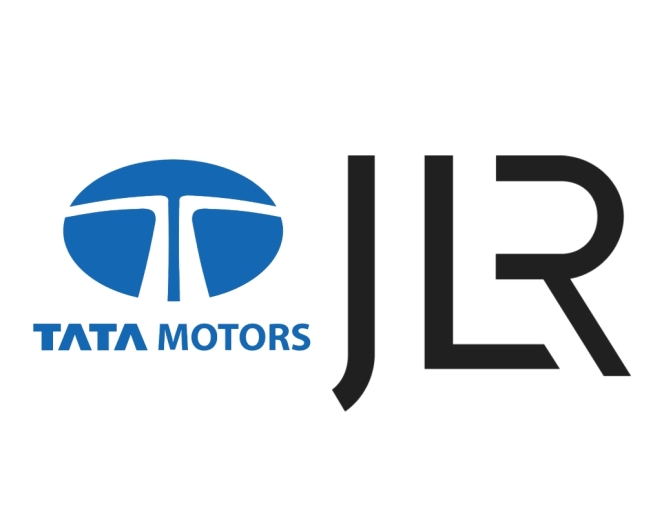
Tata Motors (TML) has announced its financial results for the quarter ending June 30, 2025. The company's consolidated revenue was INR 10,440 billion, a 2.5 percent decrease from the previous year.
The company shared was a challenging quarter for the company, as it was impacted by a decline in volumes across all its businesses and a drop in profitability, particularly at Jaguar Land Rover (JLR).
The consolidated reported a net profit of INR 40.03 billion, which was supported by a sharp reduction in finance costs. The free cash flow for the automotive sector was a negative INR 1,230 billion, primarily due to adverse working capital from seasonality and tariffs.
JLR delivered its 11th consecutive profitable quarter, despite challenging global economic conditions. JLR's revenue was GBP 6.6 billion, a 9.2 percent decrease compared to Q1 FY2025. The company's profitability and cash flow were directly and materially impacted by the application of 27.5 percent US trade tariffs on UK- and EU-produced cars exported to the US. The decrease in profitability was also influenced by foreign exchange headwinds. However, a newly signed UK-US trade deal, effective from 30 June2025, is set to reduce tariffs on UK-produced vehicles exported to the US from 27.5 percent to 10 percent. The EU-US trade deal, announced on 27 July 2025, will also reduce tariffs on JLR’s EU-produced vehicles exported to the US from 27.5 percent to 15 percent. The company's PBT for the quarter was GBP 351 million.
Adrian Mardell, JLR Chief Executive Officer, said, “Thanks to our talented people and the robust foundations we have built at JLR, we delivered an 11th successive profitable quarter amid challenging global economic conditions. We are grateful to the UK and US Governments for delivering at speed the new UK-US trade deal, which will lessen the significant US tariff impact in subsequent quarters, as will, in due course, the EU-US trade deal announced on 27 July 2025. Looking ahead, we remain focused on delivering our transformational Reimagine Strategy, including investing GBP 3.8 billion this financial year to support the development of our next-generation vehicles, including our stunning new electric Range Rover and Jaguar models.”
The Tata Commercial Vehicles (Tata CV) business saw its revenue decrease by 4.7 percent to INR 170 billion. Despite lower volumes, the business maintained double-digit EBITDA margins of 12.2 percent, an improvement of 60 bps. This was a result of better realisations and cost savings. Domestic sales volumes were down by 9 percent YoY, while exports increased by 68 percent. The business reported a net profit of INR 16.17 billion.
Girish Wagh, Executive Director Tata Motors, said, “Q1 FY26 was a challenging quarter for the commercial vehicle industry, with subdued demand across key segments impacting overall performance. We also witnessed a decline in domestic sales volumes, reflecting broader market softness and delayed fleet replacement cycles, while segments like Buses and Vans showed resilience and our International Business delivered growth. Our commitment to product innovation and customer-centricity remained strong. The launch of the Ace Pro mini-truck in multiple powertrain options received encouraging initial market response, reaffirming our focus on delivering relevant and affordable mobility solutions. Despite adverse volumes, the business delivered 12.2 percent EBITDA and healthy ROCE of about 40 percent. The acquisition of IVECO Group is a strategic leap forward in our ambition to build a future-ready commercial vehicle ecosystem. By integrating the strengths of both organisations, we will be unlocking new avenues for operational excellence, product innovation and customer-centric solutions.”
Tata Passenger Vehicles (Tata PV) revenue declined by 8.2 percent to INR 1,090 billion, reflecting softness in industry demand and the transition to new models. As a result, the EBITDA was 4 percent, down by 180 bps. The net loss for the quarter was INR 870 million, with profitability impacted by adverse volumes, realisations and the effect of leverage. However, these negative impacts were partially offset by continuous efforts to save on variable costs.
Shailesh Chandra, Managing Director TMPV and TPEM, said, “Q1 FY26 was a subdued quarter for the passenger vehicle industry, with volume pressures persisting across most segments. Demand softness weighed on overall performance, although the Electric Vehicle category remained a bright spot, supported by new launches and growing customer interest. Our continued focus on customer engagement and portfolio renewal remained strong during the quarter. New launches – Altroz and Harrier.ev –received encouraging initial market response, with their full impact expected to unfold in the coming months. Looking ahead, while the overall industry growth is expected to remain muted, we are confident that our recent and forthcoming series of launches – across ICE and EVs – will enable us to outperform the market and strengthen our position across key segments.”
Union Budget 2026-27: Supply Chain Resilience, Infra Push To Drive Auto Industry Growth
- By MT Bureau
- February 01, 2026
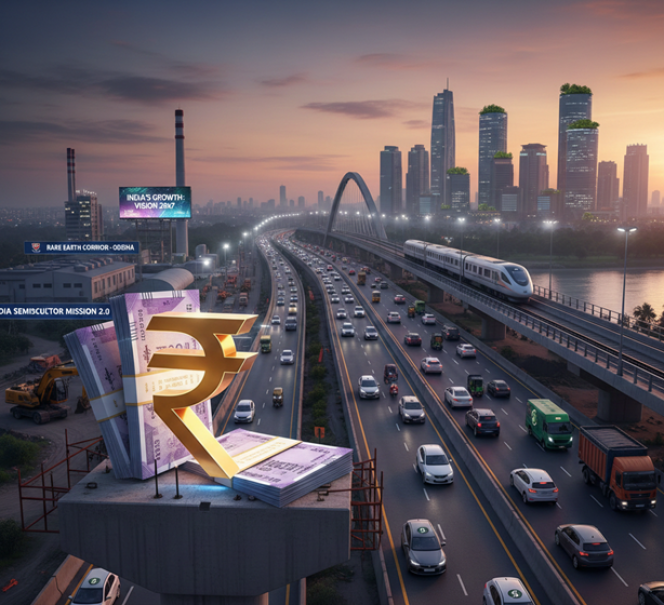
In a strategic pivot from direct consumer subsidies to foundational supply-chain resilience, the 2026-27 Union Budget, presented by Finance Minister Nirmala Sitharaman, focuses on bolstering the structural integrity of the Indian automobile industry.
A cornerstone of this year’s fiscal policy is the massive infrastructure and logistics push, highlighted by the development of the Dankuni-Surat Dedicated Freight Corridor and the operationalisation of 20 new national waterways. These initiatives, alongside a coastal cargo promotion scheme aiming to double the share of waterway freight to 12 percent by 2047, are designed to drastically lower logistics costs and ease the movement of components across the country.
Simultaneously, the government is reinforcing the industry's backbone by establishing a INR 100 billion SME Growth Fund to provide long-term capital for auto-component MSMEs, while enhancing liquidity through the Trade Receivables Discounting System (TReDS) and easing regulatory hurdles via ‘Corporate Mitras’ in Tier-II and Tier-III cities.
To secure the future of high-tech mobility, the Budget further expands the India Semiconductor Mission (ISM 2.0) to include domestic equipment manufacturing and chip IP, while nearly doubling the allocation for the Electronics Components Manufacturing Scheme to INR 400 billion. This technological drive is matched by a robust commitment to the electric vehicle (EV) ecosystem, specifically through the creation of ‘rare earth corridors’ in Odisha, Kerala, Andhra Pradesh and Tamil Nadu. These hubs will provide plug-and-play ecosystems to insulate the industry from global mineral volatility and supply curbs. Complementing this is a series of customs duty exemptions on capital goods used for lithium-ion cell manufacturing and critical mineral processing, which is expected to drive down battery costs and encourage local gigafactory expansion. Finally, for the clean energy segment, the full excise duty exemption on the biogas portion of blended CNG offers immediate relief to fuel prices, marking a comprehensive effort to foster a self-reliant, sustainable, and cost-competitive automotive landscape in the wake of previous GST reforms.
Motul Charts Future Of Mobility With Advanced Fluids At SIAT Expo 2026
- By MT Bureau
- January 31, 2026
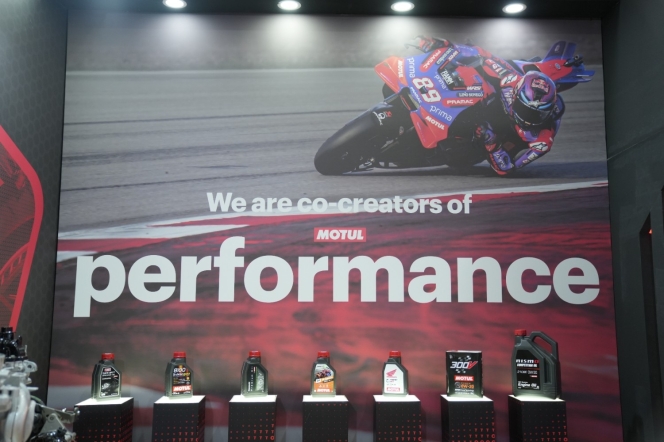
Motul India presented a comprehensive vision for the future of automotive fluids at SIAT Expo 2026, centred on innovation, sustainability and supporting the industry’s technological transition. The company’s exhibition was built around the event’s core theme of pioneering safe and sustainable mobility, demonstrating a strategic commitment to evolving alongside new vehicle architectures.
A cornerstone of this vision is the development of fluids for new propulsion systems. A keynote address by Dr Julien Plet, Global Head of R&D, elaborated on the critical role of innovative fluids for next-generation mobility. The company showcased its E-Gen series, engineered for the thermal management of electric vehicle components like motors, batteries and power electronics, positioning it as a critical solution for evolving electrified mobility. Simultaneously, for alternative fuels, Motul presented specialised lubricant formulations for hydrogen internal combustion engines, reflecting early and active research into diverse energy sources. This dual focus underscores a readiness to support the industry’s broad technological transition.
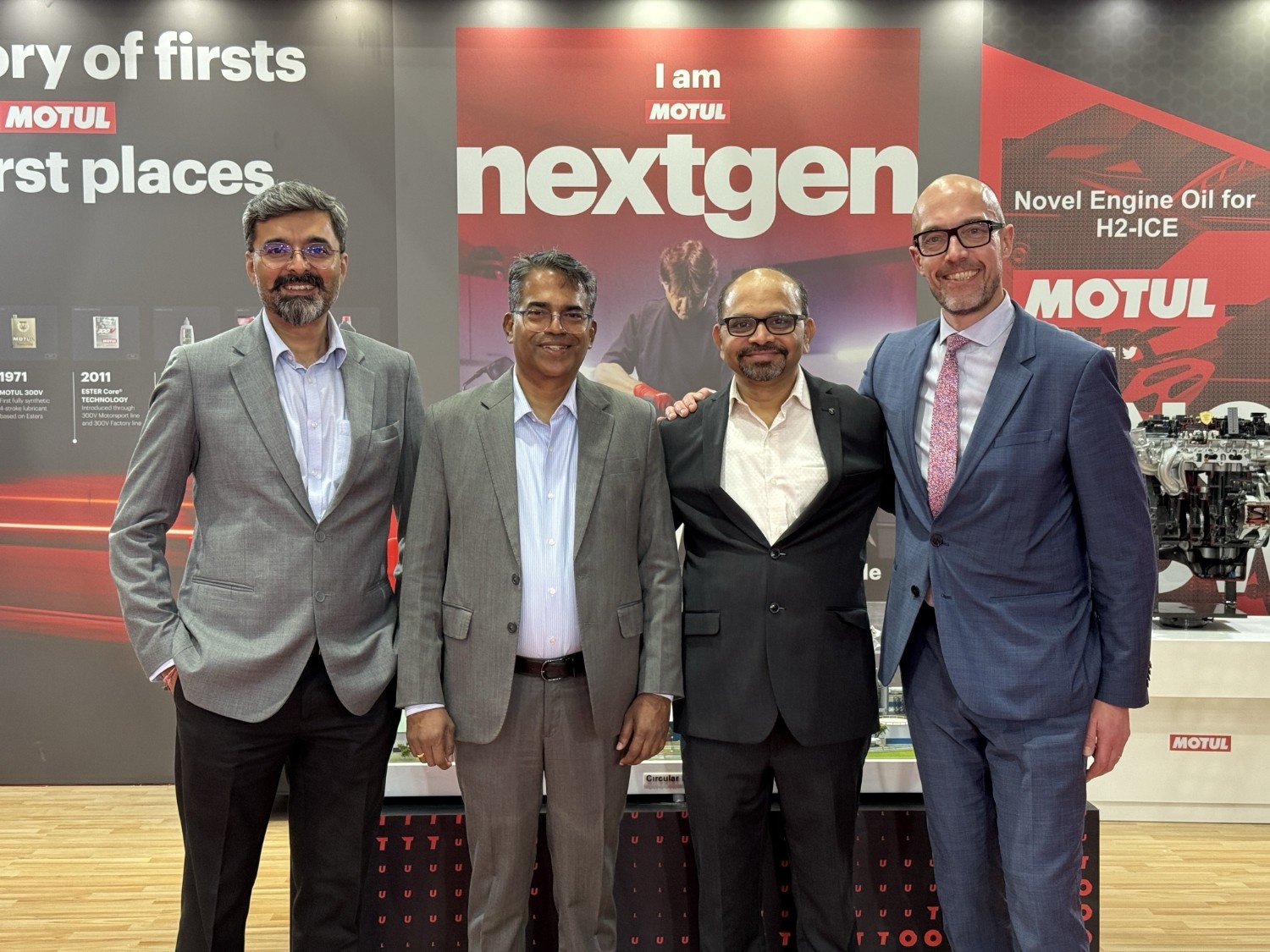
Further solidifying its technical credibility, Motul emphasised its race-to-road development philosophy. The exhibit featured OEM-validated products, including a lubricant with formal Mercedes-Benz approval and another born from collaboration with Toyota Racing Development. These examples illustrate how the company leverages the extreme demands of motorsport as a dynamic proving ground for future commercial technologies, rather than for immediate market launch.
Integral to its presentation was a strong sustainability narrative, exemplified by the NGEN lubricant range. This product line utilises base oils derived from re-refined materials, embodying circular economy principles and a long-term commitment to reducing environmental impact through responsible resource use.
Ultimately, by participating in the expo, Motul India reinforced its role as an innovation-led partner to the automotive ecosystem. With a robust global research backbone and deep industry relationships, the company showcased its structured approach to developing high-performance, sustainable fluids tailored to meet the specific demands of the Indian market as it advances.
Dr Plet said, “Motul’s research and development teams across geographies continue to focus on advancing lubricant performance for existing powertrains while developing technologies aligned with future mobility needs and local market conditions.”
Nagendra Pai, CEO, Motul India & South Asia, said, ‘’SIAT Expo is a key platform for future mobility, and Motul is proud to showcase its global innovation strength in India. By combining advanced technologies with local adaptability, Motul is ready to lead solutions across electrification, sustainability and alternative fuels.”
India-EU Ink Historic Trade Deal To Reshape Global Automotive Landscape
- By Nilesh Wadhwa
- January 27, 2026

In a move that signals a seismic shift in global trade dynamics, the European Union and India today concluded negotiations for a historic and ‘commercially significant’ Free Trade Agreement (FTA). As the largest deal ever brokered by either side, the pact creates a massive free trade zone encompassing 2 billion people and the world's second and fourth largest economies.
While the agreement spans sectors from agriculture to pharmaceuticals, it is the automotive industry that stands as the centrepiece of this industrial realignment.
Cracking the 110% tariff wall
For decades, European automakers have struggled against India’s formidable trade barriers. Under the new agreement, these hurdles are set to crumble. India has committed to a radical reduction in car tariffs, which currently sit at a staggering 110 percent. According to the official release, these duties will be gradually slashed to as low as 10 percent.
Furthermore, the deal provides a massive boost to the automotive supply chain. Tariffs on car parts – a critical sector for European manufacturers – will be fully abolished within a 5-to-10-year window. This move is expected to integrate Indian and European manufacturing hubs more closely than ever before.
European Commission President Ursula von der Leyen hailed the deal as a milestone for rules-based cooperation. "The EU and India make history today. We have sent a signal to the world that rules-based cooperation still delivers great outcomes," she said.
With a population of 1.45 billion and a GDP of EUR 3.4 trillion, India is currently the world’s fastest-growing large economy. This FTA grants European carmakers and industrial firms a ‘privileged access’ that no other Indian trading partner currently enjoys.
Beyond the finished vehicles, the deal addresses the broader industrial ecosystem:
- Machinery & Chemicals: Tariffs of up to 44 percent on machinery and 22 percent on chemicals will be mostly eliminated.
- SME Support: Dedicated contact points will be established to help smaller European component manufacturers navigate the Indian market.
- Intellectual Property: The agreement guarantees high-level protection for designs and trade secrets, providing the legal certainty required for high-tech automotive transfers and R&D investment.
The deal is not merely about volume; it is about the future of mobility. A dedicated chapter on trade and sustainable development focuses on climate change and environmental protection.
To support India’s transition toward sustainable industrialisation – a move critical for the electric vehicle (EV) sector – the EU intends to provide EUR 500 million in support over the next two years. Additionally, a new EU-India platform for climate action cooperation is slated to launch in early 2026, likely serving as a catalyst for joint ventures in green hydrogen and battery technology.
The EU expects the deal to double its goods exports to India by 2032, saving European businesses approximately EUR 4 billion per year in duties.
The path to implementation now moves to the legal and political stage. The negotiated texts will undergo legal revision and translation before being presented to the European Council and the European Parliament for consent. On the Indian side, the agreement will move toward formal ratification.
After nearly two decades of stop-and-start negotiations – beginning in 2007 and relaunching in 2022 – the road is finally clear for a new era of Euro-Indian industrial synergy.
Birla Carbon To Display Carbon Nanotube Solutions At Nanotech 2026
- By MT Bureau
- January 24, 2026
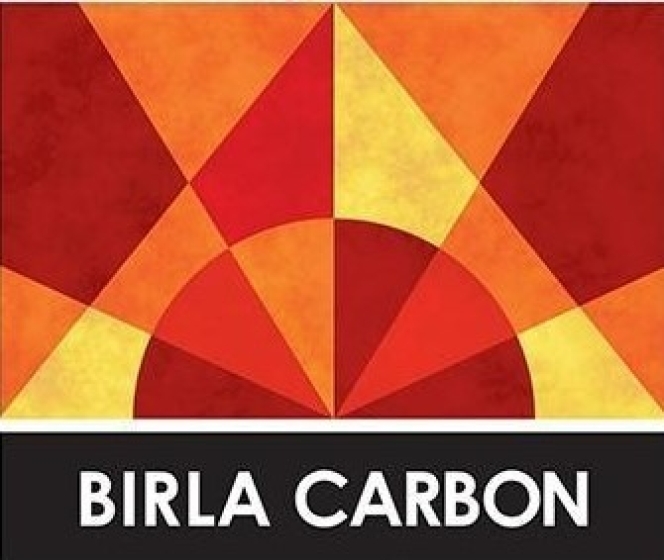
Birla Carbon is set to showcase its innovative Nanocyl range of multi-walled carbon nanotube solutions at NanoTech 2026 in Tokyo, Japan, held from 28 to 30 January. The company’s presence at Booth 3W-A11 highlights a commitment to providing advanced materials that enhance performance and sustainability for industries including automotive, electronics, energy storage and transportation. Through the Nanocyl brand, a global leader in MWCNTs, Birla Carbon offers formulations that improve material efficiency, enable significant cost optimisation and support energy savings.
A key focus will be the NC7000 MWCNT, recognised for its high electrical conductivity, superior processability and strong mechanical property retention. Its UV resistance and exceptional cleanliness make it suitable for demanding industrial and advanced applications. Beyond the base material, Birla Carbon will showcase specialised engineered formulations that address specific industry challenges. These include thermoplastic concentrates for conductive polymers, elastomer masterbatches for durable static control and epoxy-based systems that improve conductivity with processing flexibility. The portfolio also features eco-friendly aqueous dispersions and specialised solvent dispersions tailored for energy storage applications, responding to the growing demand for sustainable and efficient conductive solutions.
This participation underscores Birla Carbon’s dedication to innovation-led growth and its commitment to developing advanced materials that meet evolving market demands. Visitors are invited to explore how these MWCNT technologies can enable new possibilities and support future growth in their own projects.
Laurent Kosbach, CEO, Nanocyl, said, “Nanotechnology is a powerful enabler of material innovation. Through the Nanocyl range of carbon nanotubes, we are advancing material properties such as electrostatic discharge (ESD), electrical conductivity, mechanical reinforcement and thermal dissipation across a wide range of materials. Nanotech 2026 provides an important platform to engage with global partners and demonstrate how our engineered formulations are already delivering value across demanding industries.”







Comments (0)
ADD COMMENT